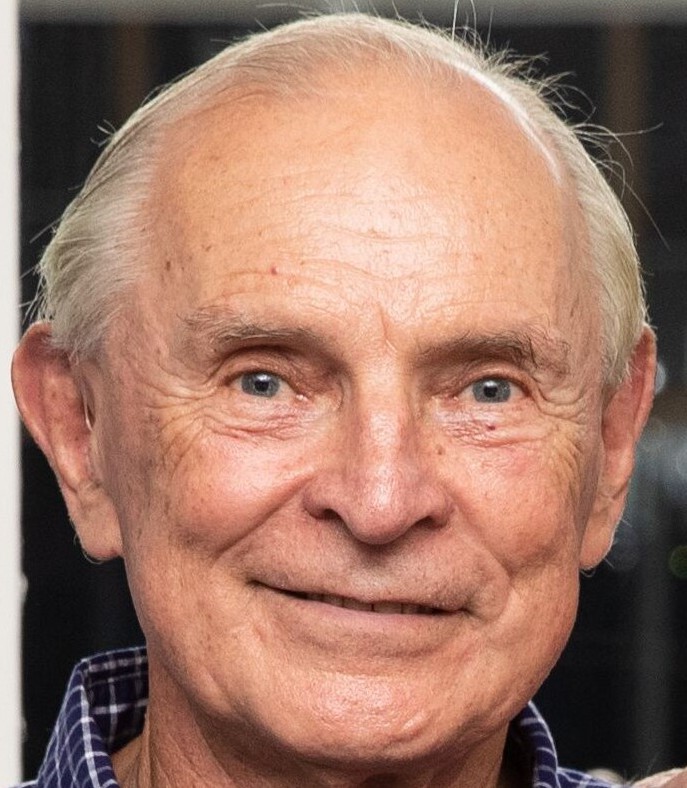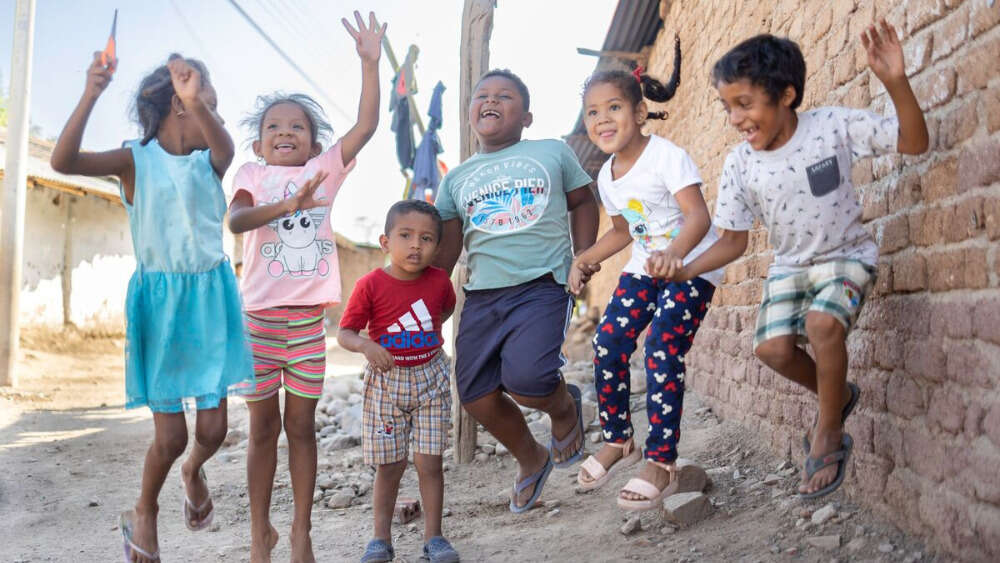If anyone understands the importance of education, it is long-time Compassion supporter Jim Rawson. Based in Queensland, Jim has been investing into the lives of youth and young people for over 50 years. With four degrees under his belt, including a PhD in Veterinary Science, Jim has channelled his personal experience witnessing the power of education into creating the same opportunities for children in Australia and in the developing world.
As well as being the State Director of the Scripture Union for 28 years and introducing school chaplaincy into the state school system in Queensland, Jim has also been ministering with Power to Change for 22 years, with ten of these as the Chairman of the Board. On a personal level, Jim has been a foster carer as well as a mentor to numerous university students, some of whom were refugees in Australia. He has seen firsthand the power of education and discipleship in helping children achieve their full God-given potential.
“In my 50 years of ministry, I have found that sowing into children and young people’s lives is the most effective way of ministering,” says Jim.

Jim Rawson
Jim explains that when a child is young, they are open to change and to new ideas. He says that setting a solid foundation for a young mind is crucial in helping them break out of destructive patterns of generational thinking and behaviour. The cycle of poverty not only keeps children trapped physically with a lack of opportunity and resources, but it also limits them mentally and emotionally. This ‘poverty of the mind’ results in helplessness and hopelessness, and is passed down from generation to generation, restricting a child’s ability to dream and reach for a future that is beyond what they can currently see. Jim believes that education is the game changer.
“When you’re not educated, unless you’re remarkable, you’re not going to rise up out of poverty because you have such limited options in what you can do.”
“When you’re not educated, unless you’re remarkable, you’re not going to rise up out of poverty because you have such limited options in what you can do,” says Jim. “Whereas once you’re educated, the options open up to you. Children start to see that they can do better than mum and dad. Education is the key to opening up these opportunities.”
Jim recalls his shaky start in education, failing high school and his first year of university. However, once Jim began to invest in his education, he started learning skills that have held him in good stead throughout his adult life and career.
“When I became a committed Christian and started to dive into education, it really started to train my brain,” says Jim.
“So when I became the head of Scripture Union in Queensland, it meant that my brain was trained in how to organise thoughts, how to think through issues and problems, how to work through theological problems, to resolve issues with staff, and so on.”
Even if a child does not end up working in the industry they trained in, the life skills they learn through receiving an education, like problem-solving and healthy patterns of thinking, yield long-term benefits for life well after the classroom.
Jim has funded three education and training-related initiatives with Compassion in Thailand and Bolivia, as well as other projects. These initiatives have ranged from funding vocational training for students to spiritual development programs and tertiary education, which are all beyond the scope of sponsorship. In situations like this, the additional support received through education and training-focused initiatives can be life-changing for vulnerable children around the world.
Compassion’s education programs work hand-in-hand with the discipleship and mentoring of young people. “No-one discipled me,” says Jim. “I was able, but I needed someone to guide me through my young life. I was not from a Christian home. Being able, I had many opportunities but very few resulted in good outcomes. I have now watched many young people being discipled and marvel at the positive outcomes, both spiritually and vocationally.”
Jim also recalls the life-changing story of a young man he mentored from Rwanda named Jay. Jay had lived in eight refugee camps before coming to Australia when he was 13 years old. He couldn’t speak English when he entered Australia, but in three months had learned enough to enrol in school.
“The school principal took Jay under his wing and really opened the door for him,” recalls Jim. “Jay eventually went onto become the school captain and study for a degree in Process Engineering. I started off mentoring him, and Jay ended up becoming a Christian.”
Along the way, the young man, whose goal was to someday punish and kill the 40 people who had killed his parents, had a transformation of heart and mind. Jim recalls that Jay’s priorities changed when he encountered the love of God.
“Jay said I’ve got to spend my time blessing them and helping them. So, he’s already invested $40,000 of his own money in the journey. He’s not even 30 years old yet, but he’s invested into buying land for a school in Rwanda.”
“We don’t want dependency on the West. It’s not helpful for people.”
Such is the power of education and discipleship coming together.
While other projects that provide physical resources such as food, clean water and healthcare have immediate and obvious outcomes, Jim maintains the importance of supporting education and training initiatives.
“There’s a very old saying that says you can give people a fish but if you teach them how to fish, then they’ll be way better off, because they’re not going to be dependent upon you,” says Jim.
“We don’t want dependency on the West. It’s not helpful for people. They’re incredibly able and very intelligent, but they just never had an opportunity to break out of the poverty cycle. And so, if we can teach them ‘how to fish’ with education, ultimately, they’ll become leaders in the nation. It’ll make an enormous difference.”
As a parting comment, Jim encourages investing into education and training projects to give children the opportunity to make a difference in their own lives and in the community around them.
“A person that is uneducated in many ways is disabled from ever achieving the outcomes in their life that they could achieve,” he says. While he acknowledges some children will ultimately rise above it, overall, he has seen the lack of education leave children at a disadvantage.
“To educate a person at least opens up opportunity, rather than not ever having the opportunity at all. And you never know what the outcome might be, perhaps a future Nelson Mandela!”
To support compassion’s work, go to http://cmpsn.co/restoreappeal
Email This Story
Why not send this to a friend?


